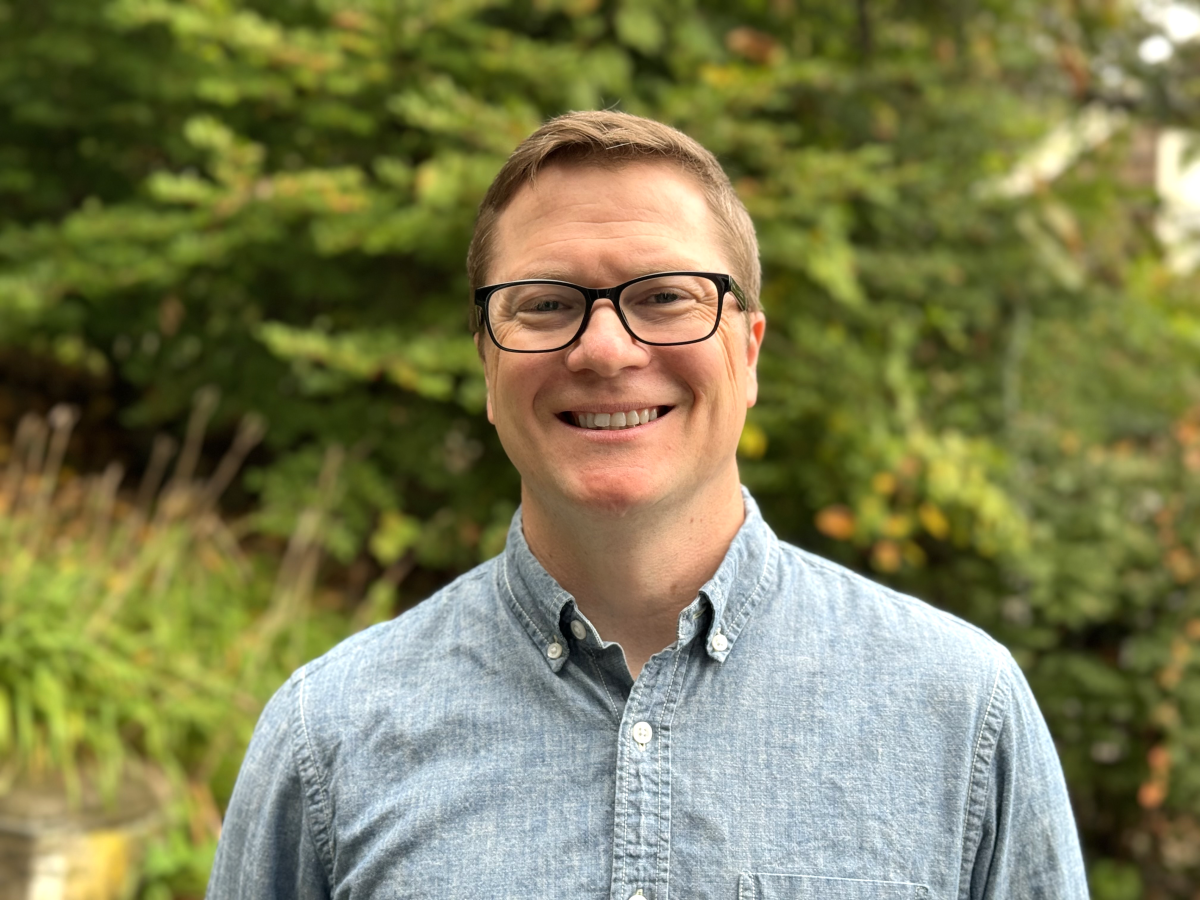 JT Neal: 'This meeting is all about community.'
JT Neal: 'This meeting is all about community.'
What are you most excited about for the 7th annual Mutational Scanning Symposium?
It’s exciting to be able to host the meeting at the Broad Institute this year, and a great fit for both the symposium and the Institute. The Broad is not only a world leader in genomics and technology research, but also a pioneer in building collaborative communities across disciplines to tackle the biggest challenges in human health. The Atlas of Variant Effects Alliance shares these collaborative values and I look forward to bringing our communities together in Cambridge this year!
I’m also very excited about our keynote speakers. Dr. Heidi Rehm is a global leader in clinical genomics and in defining standards for the interpretation of sequence variants, as well as being a tireless advocate for open science and data sharing. Dr. Vijay Sankaran is a pioneer in the field of human hematopoiesis, and an expert in decoding the influences of genetic variation on hematopoiesis in health and disease.
Between these two keynotes, MSS2024 attendees will hear insights from a pair of global experts covering the full spectrum of challenges and opportunities in bringing function to the human genome, from identifying variants and genes, to mapping their effects on molecular and cellular functions, and, finally, to translating these impacts into clinical insights and potential interventions.
In addition, we have confirmed seven additional speakers. They are:
-
Jennifer Benanti, Ph.D.: Associate Professor, Department of Molecular, Cell and Cancer Biology, Chan Medical School, University of Massachusetts
-
Anne Carpenter, Ph.D.: Senior Director of the Imaging Platform, Institute Scientist at Broad Institute of MIT and Harvard
-
Willow Coyote-Maestas, Ph.D.: Assistant Professor Bioengineering, School of Pharmacy, University of California, San Francisco
-
John Doench, Ph.D.: Director of Research and Development in the Genetic Perturbation Platform, Institute Scientist at the Broad Institute of MIT and Harvard
-
Joe Marsh, Ph.D.: Personal Chair of Computational Protein Biology in the MRC Human Genetics Unit, University of Edinburgh
-
Anne O'Donnell-Luria, M.D., Ph.D.: Assistant Professor of Pediatrics, Harvard Medical School
-
Marc Ostermeier, Ph.D.: Professor of chemical and biomolecular engineering, Whiting School of Engineering, Johns Hopkins University
What is new this year for this symposium?
The mutational scanning symposium is our Alliance’s signature annual event, and MSS2024 represents not just the seventh iteration of this meeting, but also the continued growth and evolution of our community and our science. After heading across the pond to the Wellcome Sanger Institute last year, we’ll be back in North America and hosting the meeting for the very first time at the Broad Institute Campus in Kendall Square in Cambridge, Massachusetts.
This year will also mark the return of the popular Mutational Scanning Symposium Workshop after a brief hiatus. The workshop, which is being spearheaded by my fellow planning committee member Alan Rubin, Ph.D., will feature a full day of deep-dive technical presentations on topics of interest to the mutational scanning community.
What is this year’s theme and how does it relate to the participants’ work?
While I haven’t come up with a catchy slogan for this year’s symposium, our general theme is “Technology and Innovation.” One of my favorite science quotes is from Sydney Brenner, the South African biologist and Nobel laureate. He said “Progress in science depends on new techniques, new discoveries, and new ideas – probably in that order.” This principle is not only near and dear to my heart as a technology developer, but also applicable to the AVE community whose members are an incredibly creative group of folks constantly innovating to move the needle in a field that is rapidly evolving. It also seems an appropriate theme given that Kendall Square in Cambridge has been branded, “The most innovative square mile on the planet” – a claim that will certainly be true when MSS comes to town on May 22nd!
Why should people participate in this symposium?
This meeting is all about community. So, bringing together new and existing members of our mutational scanning community, but also an opportunity to introduce those communities to the Broad community, whose members, I believe, will be excited to attend this symposium. These communities have a lot to learn from each other. The symposium will also allow participants to catch up with old friends and share new ideas.
What do you want people to come away with and remember afterward?
I want them to look back and realize how fast this field is moving and how much progress we have made in just the short year since we met at the Sanger Institute in the U.K. Progress not just in terms of the science and the technology, but in terms of what we have been able to do in growing this community. I hope when folks reflect on this meeting and on the last couple of years they are proud of what we’ve been able to accomplish together.


